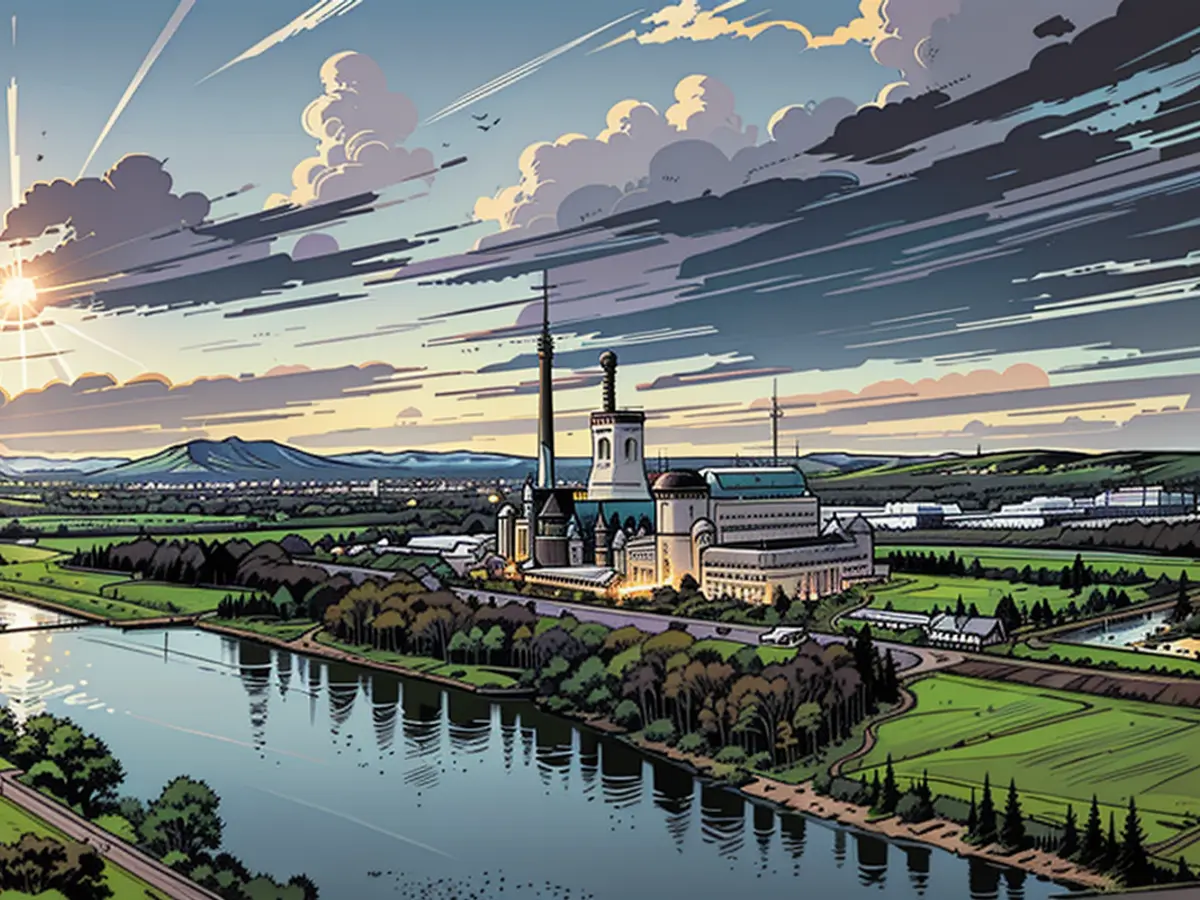Building a semiconductor fabrication plant in Saarland prior to its shutdown
The supposed union between Wolfspeed and ZF Friedrichshafen in constructing a chip factory in Saarland is reportedly experiencing difficulties, according to a confidential source. This is due to the sluggish interest in electric vehicles, leading to the project's temporary suspension. This development represents the second challenge for Europe's chip manufacturing strategy.
The automotive supplier, ZF Friedrichshafen, is reportedly stepping away from the venture to establish a semiconductor plant with Wolfspeed in Saarland. Wolfspeed has put the project on hold indefinitely due to the diminished demand for electric vehicles, a source privy to the matter stated. "They're not confident if diving into the European market is still viable." ZF can redirect the approximately 170 million euros elsewhere. The departure marks the end of the factory plan.
ZF refused to comment. Wolfspeed could not be reached for comment. The companies unveiled the plan back in early 2023, in the presence of German Chancellor Olaf Scholz and Economics Minister Robert Habeck. With state aid, a factory was slated for construction at a cost of 2.75 billion euros by 2027, producing silicon carbide semiconductors. These components can boost the electric vehicle's range.
The collapse of the project marks the second setback to Europe's aim of being self-sufficient in chip manufacturing following Intel's chip factory in Magdeburg being delayed. Europe's reliance on Asia was a disadvantage during the COVID-19 pandemic, as chip manufacturers prioritized electronics industry deliveries over the automotive industry.
Economist Stefan Kooths from the Kiel Institute for the World Economy (IfW) views the impending failure as evidence of Germany's ineffectual economic policy. "It underscores that competitiveness cannot be subsidized - especially in a cyclical business like the chip industry," said the IfW director. "The state does not have a knowledge advantage over private investors." Private investors possess strong motivations to consider risks in investments, as they risk their own funds. "The state doesn't have that, because politicians don't have to take responsibility if their subsidies turn out to be a disappointment."
ZF under strain
Wolfspeed recently reported financial losses and delayed the project's construction start in the summer. The company is currently engaged in two significant initiatives in the US: expanding its chip production at the Marcy/New York plant and constructing a new wafer factory in North Carolina. Last week, Wolfspeed secured $750 million in state subsidies for the latter, provided that Wolfspeed improves its financial standing and guarantees taxpayers' money.
Wolfspeed has three investment funds as co-financiers of an additional $750 million and expects a $1 billion tax refund. New funds will be raised, and interest payments will be deferred. Investors have expressed doubts due to the slow transition to electric vehicles, resulting in the stock's significant fall this year.
The slow transition to electric vehicles is also exerting substantial pressure on Germany's second-largest automotive supplier, ZF. Following heavy investments in electric drive technology, automakers are not purchasing the expected volumes. The foundation-owned company has announced plans to cut every fourth of its 54,000 jobs in Germany by 2028. It also recently revised its profit forecast.
Despite Wolfspeed's financial struggles and delayed construction, the Manufacturers of chips, specifically Wolfspeed, are actively pursuing other projects in the US. Meanwhile, the lack of strong demand for electric vehicles is also affecting ZF Friedrichshafen, one of Germany's major automotive suppliers, forcing them to consider significant workforce reductions.








